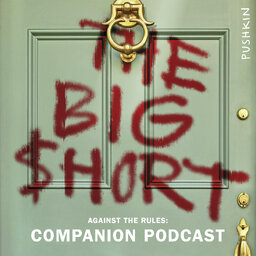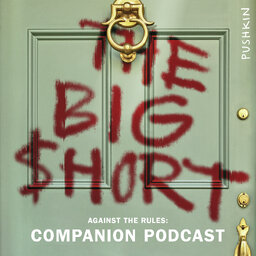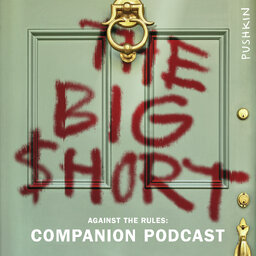On Background: Bad Actors on the Blockchain
For his next book, Michael Lewis wants to find out how investigators manage to trace the murky trail of illicit crypto. Cryptocurrency started with the dream of cash changing hands without a trace. But that dream has turned into a nightmare for many would-be criminals. A new field has emerged of data geeks and law-enforcement experts trying to find out who’s behind transactions on the blockchain. Michael calls up Andy Greenberg, senior cybersecurity writer for WIRED and author of “Tracers in the Dark: The Global Hunt for the Crime Lords of Cryptocurrency” to find out how investigators crack the code of crypto.
Questions for Michael? Submit them by visiting atrpodcast.com.
 Against the Rules: The Big Short Companion
Against the Rules: The Big Short Companion


